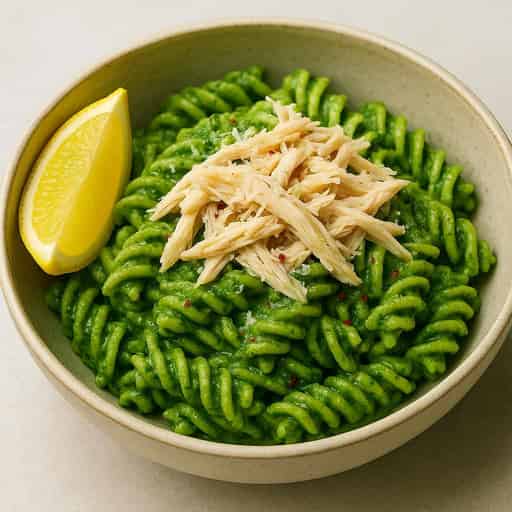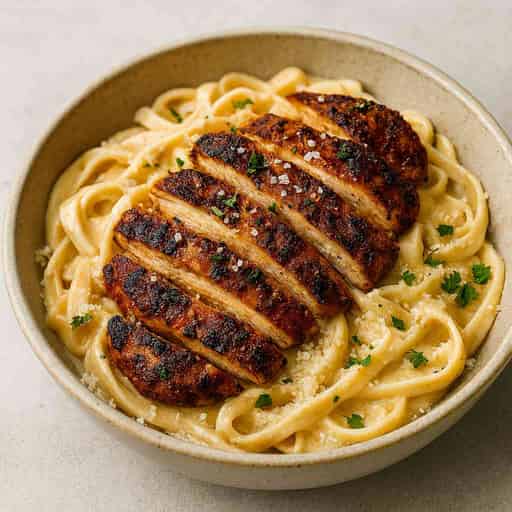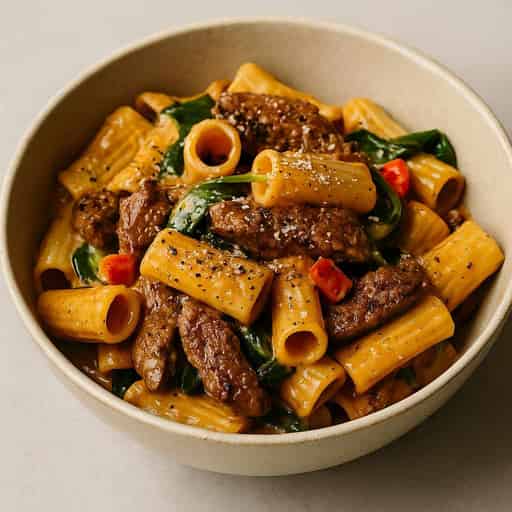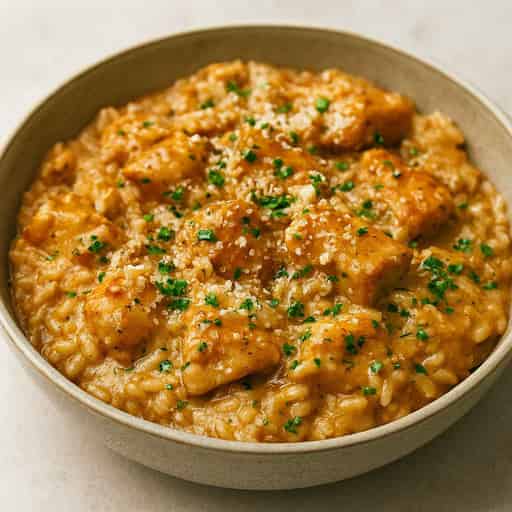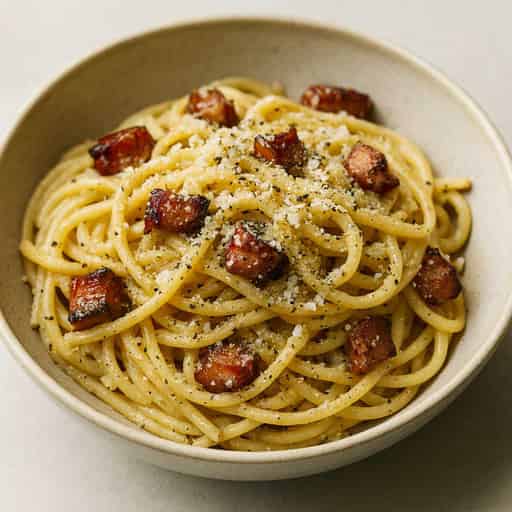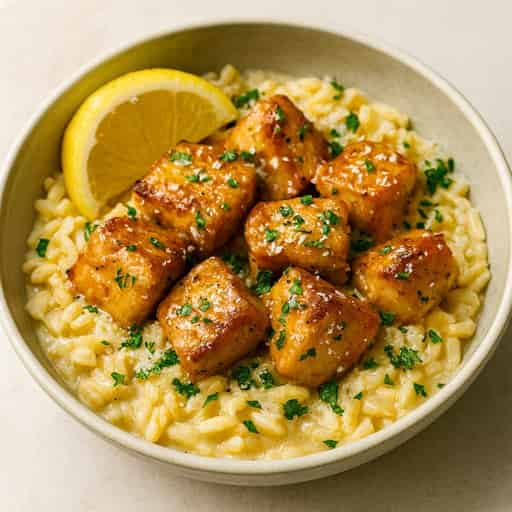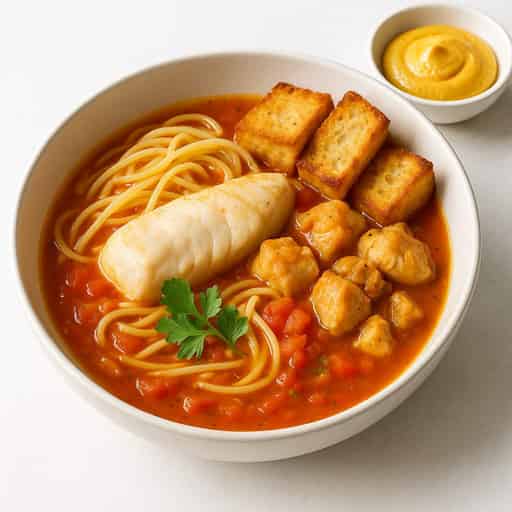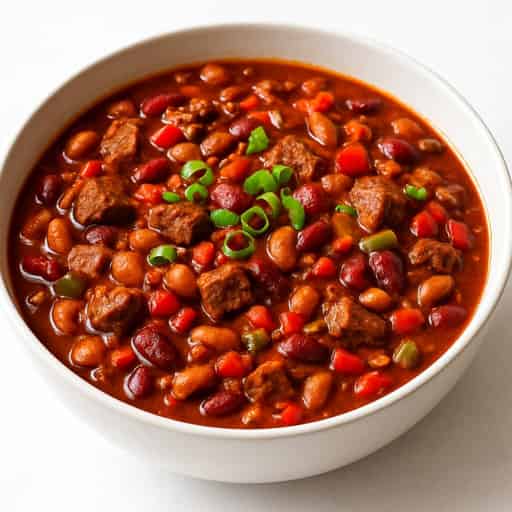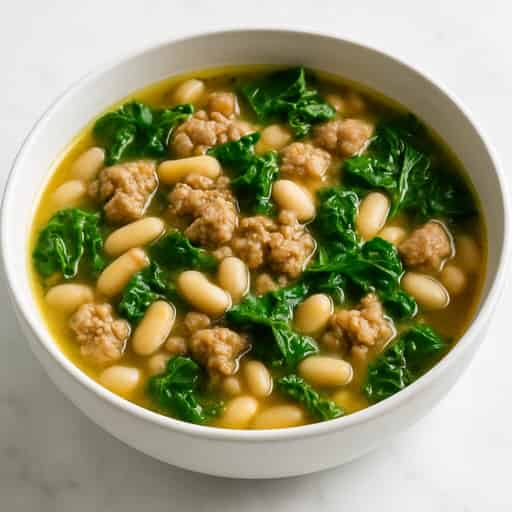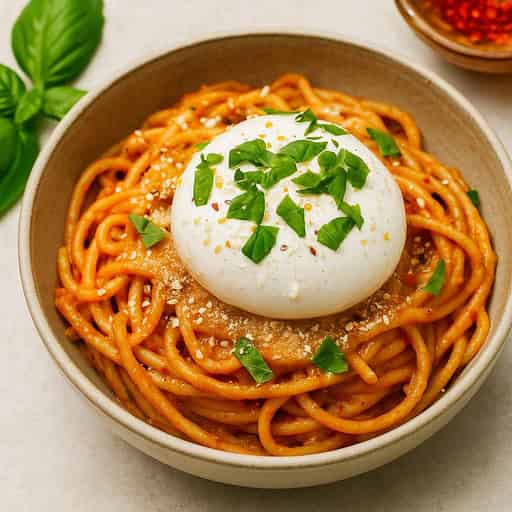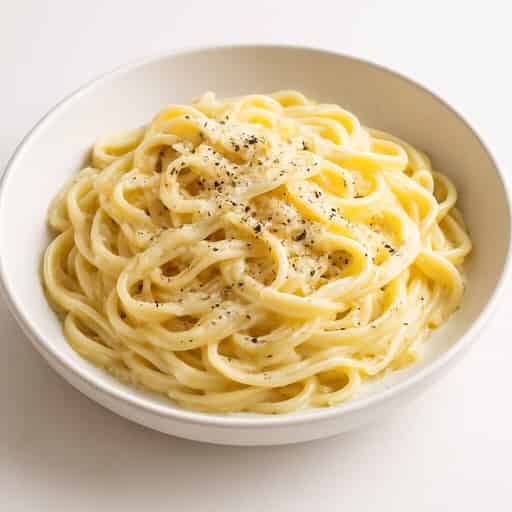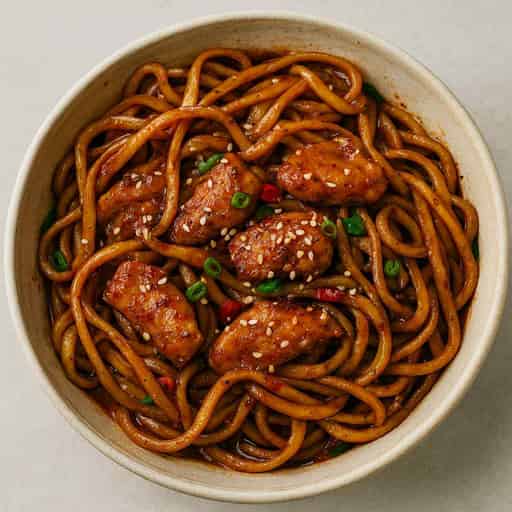07 November 2025
High-Protein Butternut Squash Feta Pasta—Creamy Comfort Reimagined!
Shredhappens (adapted by JojoM)
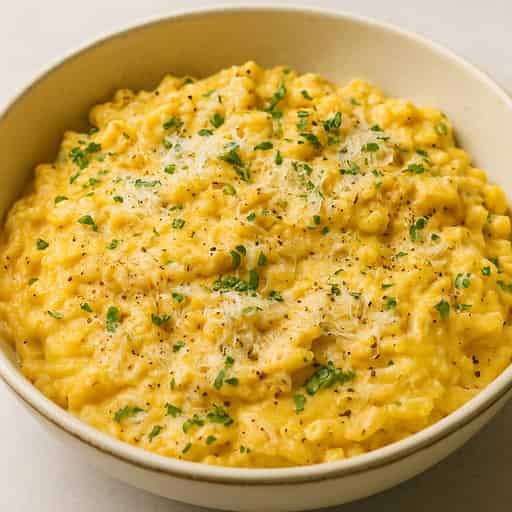
A creamy, high-protein pasta made with roasted butternut squash, feta, and cottage cheese—comfort food without the carb crash. Easy, filling, and macro-friendly.
🧡 High-Protein Butternut Squash Feta Pasta—Creamy Comfort Reimagined!
If you’re craving pasta but want to skip the carb crash, this High-Protein Butternut Squash Feta Pasta is your answer! 🍝✨
It’s creamy, savory, and full of rich roasted flavor—thanks to a trio of butternut squash, feta cheese, and cottage cheese that blend into a luxurious sauce. Each serving delivers around 33g of protein, making it an ideal meal-prep or post-workout dish that doesn’t sacrifice comfort.
🥕 Why You’ll Love This Recipe
- 💪 High-protein, low-carb—perfect for fitness-focused or balanced eating.
- 🧀 Creamy and tangy from feta and cottage cheese.
- 🍂 Autumn-inspired comfort food that feels indulgent but is nutrient-packed.
- 🔥 Easy one-pan roast and blender sauce—no complicated steps.
🔥 Step 1: Roast the Vegetables
Roasting is where the flavor magic begins. The butternut squash caramelizes beautifully, adding natural sweetness that pairs perfectly with salty feta.
1️⃣ Preheat oven to 400°F (200°C).
2️⃣ Halve and deseed your butternut squash, then score the flesh.
3️⃣ Arrange the squash halves, red onion, and feta in a baking dish.
4️⃣ Drizzle with olive oil and season generously with salt, pepper, paprika, and thyme.
5️⃣ Roast for 45–55 minutes, or until golden and soft enough to blend.
💡 Tip: Adding a few cloves of roasted garlic can make the sauce even deeper in flavor.
🧄 Step 2: Blend the Creamy Sauce
Once roasted, everything comes together in a blender for that signature silky texture.
- Scoop the soft squash flesh and add it to your blender.
- Include the roasted onion, feta, bone broth, and cottage cheese.
- Blend until smooth and creamy, adjusting consistency with extra broth or a splash of pasta water later.
🥣 You’ll end up with a velvety, naturally thick sauce that coats every noodle perfectly.
🍝 Step 3: Cook the Pasta
Use your favorite high-protein or low-carb pasta—Kaizen, chickpea, lentil, or whole-grain all work well.
- Boil in salted water according to package directions.
- Drain and reserve a little pasta water for later mixing.
🍽️ Step 4: Combine & Serve
Time to bring everything together!
- Toss the cooked pasta in your butternut-feta sauce.
- Stir over low heat, adding splashes of pasta water until the sauce clings beautifully.
- Taste and adjust salt and pepper.
Garnish with chili flakes, fresh herbs, or grated Parmesan, and serve warm.
✨ Optional: For extra flair, sprinkle crispy sage leaves or toasted walnuts on top for crunch!
💡 Pro Tips
✅ Roasted shallots or garlic add depth and sweetness.
✅ Save pasta water—it’s the secret to a perfectly creamy sauce.
✅ Top with chili flakes or crispy sage for a cozy, restaurant-style finish.
🧠 Nutrition (Per Serving)
| Calories | Protein | Carbs | Fat | Fiber | | -------- | ------- | ----- | --- | ----- | | 340 kcal | 33g | 22g | 12g | 5g |
It’s comfort food that fuels your body—creamy, filling, and guilt-free. 💪
💬 Reader Comments
⭐⭐⭐⭐⭐ Amely:
“This sounds like the perfect balance of comfort and health! I love that it’s creamy yet packed with protein. Definitely trying this soon!”
⭐⭐⭐⭐⭐ Betty 💕:
“Fantastic healthier alternative for pasta lovers. Simple ingredients but so flavorful. Love the high-protein twist!”
⭐⭐⭐⭐⭐ Flesh of God:
“Love all your recipes—this one looks unreal!”
⭐⭐⭐⭐ Halle:
“What pan did you use for roasting? The color looks gorgeous!”
Inspired by Shredhappens on TikTok and adapted by JojoM ✨
A perfect way to turn cozy comfort food into a protein-packed masterpiece! 🍂💪
High-Protein Butternut Squash Feta Pasta—Creamy Comfort Reimagined!
Shredhappens (adapted by JojoM)A creamy, high-protein pasta made with roasted butternut squash, feta, and cottage cheese—comfort food without the carb crash. Easy, filling, and macro-friendly.

Chef's Tips
Use roasted garlic or shallots for extra depth of flavor.
Save a little pasta water to adjust sauce consistency.
Top with chili flakes or crispy sage for garnish.
Tools Used
OvenBaking DishBlender(opens in a new tab)Pot(opens in a new tab)Knife(opens in a new tab)Chopping Board(opens in a new tab)
We use affiliate links, which may earn us a small commission at no extra cost to you.
Ingredients
USMetric
Main Ingredients
Instructions
Roast the Vegetables
- 1
Preheat oven to 400°F (200°C).
- 2
Cut the butternut squash in half, scoop out the seeds, and score the flesh.
- 3
Arrange squash halves, red onion, and feta cheese in an oven-safe dish.
- 4
Drizzle with olive oil and season with salt, pepper, paprika, and thyme.
- 5
Roast for 45–55 minutes or until the squash is tender and caramelized.
Blend the Sauce
- 1
Scoop out the roasted squash flesh and transfer it to a blender with roasted onion and feta.
- 2
Add bone broth and cottage cheese, then blend until smooth and creamy.
Cook the Pasta
- 1
Boil the high-protein pasta in generously salted water according to package directions.
- 2
Drain, reserving some pasta water for later.
Combine and Serve
- 1
Toss the pasta with the creamy butternut squash sauce.
- 2
Adjust consistency with a splash of pasta water if needed.
- 3
Season to taste and top with parmesan, herbs, or chili flakes before serving.
Comments & Reviews
Halle
11/7/2025
What pan did you use for roasting? The color looks gorgeous!
Flesh of God
11/7/2025
Love all your recipes—this one looks unreal!
Betty 💕
11/7/2025
Fantastic healthier alternative for pasta lovers. Simple ingredients but so flavorful. Love the high-protein twist!
Amely
11/7/2025
This sounds like the perfect balance of comfort and health! I love that it’s creamy yet packed with protein. Definitely trying this soon!
Save, Plan & Shop Smarter
Create and edit your own recipes, import from most websites, plan your week, and build smart grocery lists.
Import recipes from most websites
Create and edit your own recipes
Plan your week with the Meal Planner
Mark favourites for quick access
Build grocery lists from your meal plan
Tick off pantry items you already have
Nutrition Facts
Serving Size: 1 plate (about 300g)
Calories 340
% Daily Value*
Total Fat 12g15%
Saturated Fat 5g25%
Trans Fat 0g
Cholesterol 35mg12%
Sodium 520mg23%
Total Carbohydrates 22g8%
Dietary Fiber 5g18%
Sugars 6g
Protein 33g
* Percent Daily Values are based on a 2,000 calorie diet. Your daily values may be higher or lower depending on your calorie needs.
Create your own recipe
Add your personal creations and build your own recipe collection.
Loading...

